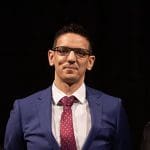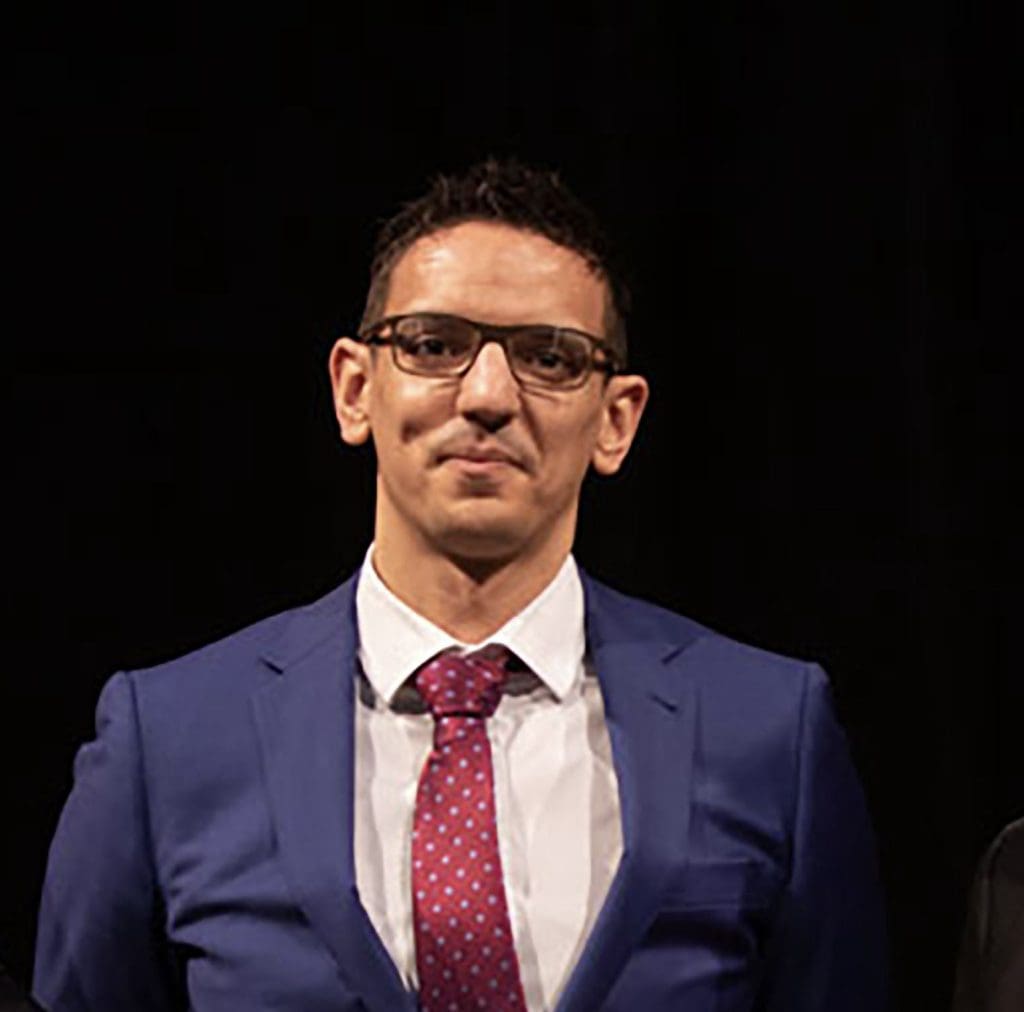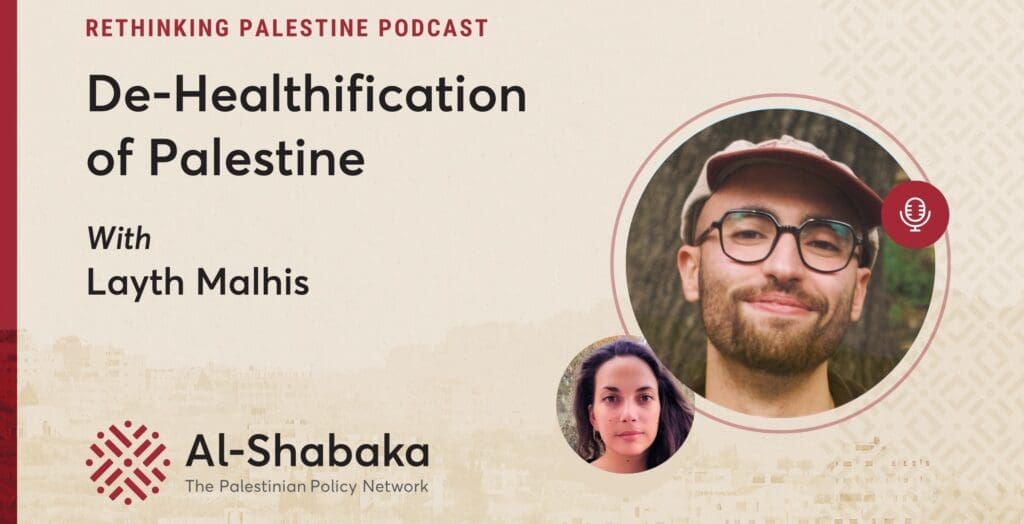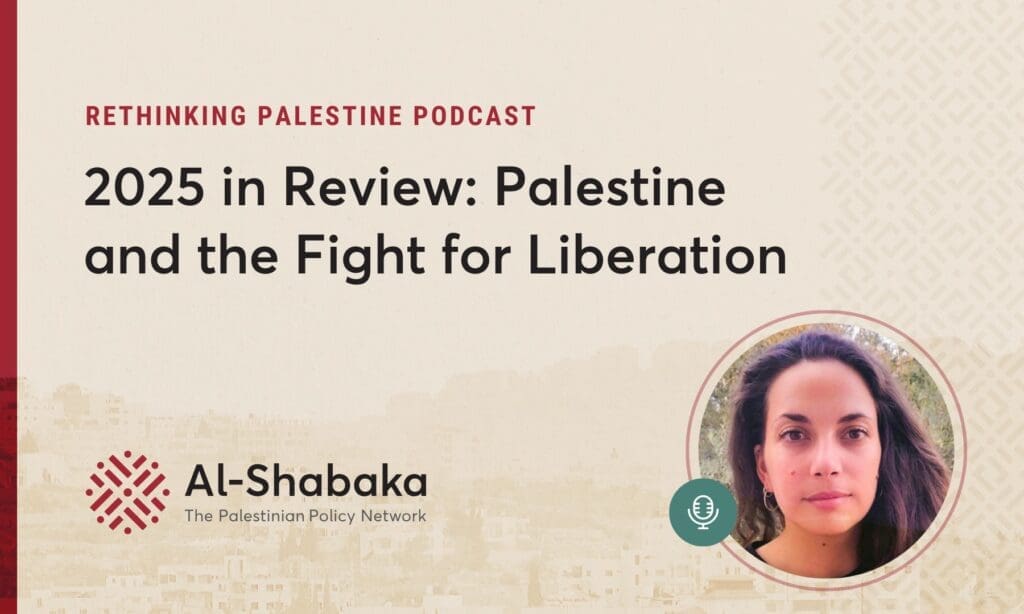About This Episode
Episode Transcript
About This Episode
M. Muhannad Ayyash joins host Yara Hawari to discuss liberal Zionism and the dominant role it plays in Zionist ideology. He exposes its essential function of providing the settler colonial project with the veneer of enlightened, Western civilization and democratic politics.
Episode Transcript
The transcript below has been lightly edited for brevity and clarity.
Muhannad Ayyash 0:00
Liberal Zionism didn’t create something out of nothing. they simply followed the playbook that was already established by Euro American colonial, imperial, and settler colonial projects. They basically fall squarely into that phenomenon that decolonial scholars will call colonial modernity.
Yara Hawari 0:23
From Ashabaka, the Palestinian Policy Network, I am Yara Hawari, and this is Rethinking Palestine.
With the re-election of Benjamin Netanyahu to the Israeli parliament and with the most right-wing government to date, never has it been easier to criticize Israeli regime policies against the Palestinian people. This focus on the right-wing nature of the Israeli government by Western politicians and Western mainstream media has allowed them to avoid critiquing Zionism and the foundation of the State of Israel.
Whilst it’s true that this form of right-wing Zionism, on display by the likes of National Security Minister, it’s true that Itamar Ben Gvir and Finance Minister Bezalel Smotrich is crudely violent. Liberal Zionism still plays a dominant role in Zionist ideology and one that has equally violent manifestations.
Indeed, it fulfills the specific and critical function of providing the Zionist settler colonial project with the veneer of enlightened Western civilization and democratic progressive politics. In a Shabaka policy brief published in June 2023, Al-Shabaka member and professor in the Department of Sociology and Anthropology at Mount Royal University in Canada, Muhannad Ayyash, exposes this veneer and proposes a guiding framework for how to confront and invalidate that notion of liberal Zionism.
The policy brief is, of course, available on our website at Al-Shabaka.org. Muhannad, thank you for joining me on this episode of Rethinking Palestine.
Muhannad Ayyash 1:52
Thank you, Yara. It’s a pleasure to be with you today.
Yara Hawari
So let’s not take anything for granted. Can you spell out what liberal Zionism is, where it emerged from, and what the core tenets are?
Muhannad Ayyash 2:04
So liberal Zionism emerges out of the so-called socialist left of the Zionist movement. For as long as we’ve had the 20th century, it’s always been divided across the political spectrum from left to right and everything in between. Liberal Zionism is today’s dominant force on the left wing of the Zionist movement, which itself is not that dominant anymore.
As you rightly point out, Israeli politics have veered further and further into the right, but liberal Zionism basically presents itself as the defender of human rights, international security, law and order, progress, democracy, toleration of diversity, respect for ethnic, racial and religious and gender diversity and so forth.
So it’s a place in the larger Zionist movement. It speaks the language of Israel. It is a liberal democracy that promotes European, Euro-American progress in civilization and modernity in general. So one of its main principles or tenets is that it proclaims that the establishment of the Israeli state
is the only way to secure Jewish safety and security. It sees the Israeli state as only the Zionist movement, right? As it is Zionist. It sees the Israeli state as the only way to resolve the “Jewish question of antisemitic Europe”. It views the land, the historic land of Palestine, as the rightful place where that project should unfold, that this land is really the land of Israel, and that Israeli Jews have an inherent sovereign claim to that territory. And therefore 1948 becomes a central event that it views as unquestionable. As far as liberal Zionism is concerned, 1948 was a war of independence.
It was a war where Israel was created to safeguard Jews from across the world and protect themselves against the aggression of Arab states who were hostile to the idea of creating the Jewish state in the land of historic Palestine. And some of them will acknowledge, the quote-unquote tragic dimension of that founding, that is the displacement and expulsion of the indigenous Palestinian inhabitants, but they ultimately view this as a righteous, valid, and legitimate war of independence that should no longer be open to any kind of serious decolonial critiques.
Therefore any kind of Palestinian critique of the foundation of the Israelis. So that becomes the most critical element of liberal Zionism. Don’t touch 1948.
Yara Hawari 4:54
So there was, and to some extent continues to be a romanticization of the Zionist settler colonial project by Western leftists who saw the creation of Israel as utopia come true. Forget the fact that this utopia was planted literally on top of an indigenous society and that this project’s policies were to ensure the erasure of the survivors of that society. But the 1967 Naksa, the occupation of the rest of historic Palestine, was a wake up call for some who began to see the Israeli regime and the Zionist project for what it was, an expansionist regime.
And indeed it was the Israeli Labour Party, a so-called left-wing party, which began the settlement enterprise in the West Bank, Gaza, and Syrian Golan. Can you tell us a little bit about this relationship between Western leftists and liberals and liberal Zionism?
Muhannad Ayyash 5:52
Absolutely. So, let me take a step back first.
Let’s go back to those early parts of the 20th century, many Israeli historians will talk about how there were cleavages already within the issue of the Jewish community in historic Palestine prior to the establishment of the state of Israel, there were cleavages and distinctions and divisions over how to build the Jewish state, and they’ll point out how those on the left wanted to create this socialist utopia that you mentioned in the beginning of your question.
There were, of course, the revisionists, the sort of more religious groups that viewed their mission in Palestine as more, in more messianic terms, as opposed to socialist terms. And lot of ink has been spilled over these debates and talking about the differences between these groups and so on.
But despite all those differences, they both shared one fundamental goal, that there ought to be a Jewish majority inhabiting a Jewish land called Israel under a Jewish state. And that meant the expulsion of the Palestinians. Yes, they differed in some of their terminology and their worldviews and I’m not trying to completely dismiss that.
That is an object of scholarly study and analysis and public discourse. But they did both share that the Palestinian indigenous inhabitants ought to be removed from their lands in order to create this Jewish state for a Jewish majority. So they both agreed on that. Now, they differed sometimes in terms of how much territory and how to take that territory.
There were debates about that, of course. But ultimately, again, they both share that foundational Zionist belief of a Jewish majority in a Jewish land under a Jewish state, with exclusive Israeli Jewish sovereignty. And the liberal strand of this Zionism, as I said, of course, always speaks the language of liberal democracy, of modernization, of creating, bringing about progress and the enlightenment to the backward land of the indigenous racialized peoples. They shared that with all Western, European, and North American settler colonial and colonial imperial projects. So, that’s the sort of the foundational link between the Western left establishment and liberal Zionism. And the Zionist movement in general, the West also had its own liberal political ideology that was used to justify the brutal violence of settler colonialism, colonialism, slavery, imperialism, and so on.
So liberal Zionism didn’t create something out of nothing. They simply followed the playbook that was already established by Euro-American colonial, imperial, and settler colonial projects. They fall squarely into that phenomenon that decolonial scholars will call colonial modernity.
Colonial modernity refers to the ways in which modernity as we know it, whether you’re talking about institutions like liberal democracy or a capitalist political economy and so on, could not have emerged in the way that it has emerged without the colonial project. You can’t understand them as two separate things.
It’s not like we’re progressive and we’re rational and we’re all for democracy. And then there are these other things that we do that are not so nice every once in a while. But let’s just forget about the bad things that we did, which are things that we can just get over and just focus on being these nice, modern, enlightened individuals.
But the problem, of course, with that thinking is that you can’t divorce the two. You can’t separate the two. What you do is who you are. Not we’re one thing and what we do is another thing. This is a very, by the way, important feature of liberal Zionist thinking, and even I would say critical Zionist thinking.
You know, people who see themselves as Zionist, but are critical, they see themselves left of the liberals. They still hold on to that way of thinking of Zionists are one thing. It’s all about saving, liberating Jews, saving them from exile, saving them from the anti-Semitism of Europe.
And that’s who they are, and they bring progress and rationality and anti-racism and democracy and all the rest of it, and that’s who they are, and what they have done is just this separate thing. It’s just a necessary, ugly thing that they needed to do to secure who they are. That’s a very weak separation.
It doesn’t withstand a closer academic… a historical scrutiny. What you do is who you are. I’ll repeat that. And what Zionists did was settler colonialism. What Zionists still do is settler colonialism. What they do is practice apartheid within that settler colonial project. And that changes who you are.
That turns you into who you become. That violence continuously is acting on the individuals who use it to change them into something other than what they thought they were. This is a really, I think, important part of the discussion that needs to be unpacked and it should be directed just as much at Euro-American, Western leftist establishment, as it is against the Zionists because they’re part of the same thing.
They see themselves in this battle of good versus evil. Sometimes the liberals don’t use the language of good versus evil openly, but they do operate on that worldview. They think of themselves as these ultimately good guys who have just had to do these evil things sometimes in order to secure the cause of the good side in world history.
It’s all rubbish, it’s all a fantasy and anti-colonial and decolonial scholars and activists and revolutionaries have been calling that liberal ideology the fantasy that it is for decades throughout colonial history because we see as victims of that violence, we see what the true face of their project is.
And so liberal Zionism is, as a liberal ideology is in all colonial projects, can actually be quite dangerous because it provides that veneer and that cover for these brutal systems of violence and in fact advances them itself as well. It does, it’s not just like the nice face to another one, you know, to something bad.
That is someone else’s doing. They’re doing it too, labor Zionism was the reason why there was an Israeli state. That was the dominant political ideology in the Zionist movement. So they are themselves driving settler colonialism. And as you rightly said, it was labor governments that started this settlement project that took over in 1967, all of the land of historical Palestine.
The Zionist project has always wanted the whole territory. This is not a secret. People hide it and try to conceal it in public discourse today. But this is, and they’ve tried to conceal it from the beginning as well, from the early parts of the 20th century. We see it in their diaries. We see it in their committee meetings and so on and so forth, that they wanted the whole thing.
They just couldn’t take it all at once. And so Ben Gurion himself used the word, you know, the language of stages. We move in stages and ultimately we’ll take over the whole thing. And so this is the continuation of those stages. They’re still trying to take over the entire piece of land from the river to the sea and put it all officially under Exclusive Israeli Jewish sovereignty.
Yara Hawari 12:57
If you’re enjoying this podcast, please visit our website, al-shabaka.org where you will find more Palestinian policy analysis and where you can join our mailing list and donate to support our work.
Well, Muhannad thanks for that. I think it’s really an important point, that Zionism left or right is at its core an expansionist project and also, you know, how you situated liberal Zionism within a wider critique of liberalism is key.
Now I want to bring us a bit into the present and talk about liberal Zionism in the context of the so-called Israeli pro-democracy protests in opposition to Netanyahu’s proposed judicial reforms. And what we are seeing in terms of this clash between right-wing strands of Zionism and liberal Zionism.
Muhannad Ayyash 13:49
Once again, I also like to take a step back as well, not too far back, but what we’re witnessing today is a continuation of a long-standing dynamic that started to emerge in the 1970s onwards, and took hold in the 1980s, where there is this, again, alleged cleavage between right-wing Israelis and left-wing Israelis.
So right-wing Israelis became associated with religious Zionism and with the settler movement, and they’re driving that, and they become more and more dominant within Israeli politics. The sort of, left wing of that has presented itself increasingly from the 60s and 70s onwards as liberal Zionists, as secular, liberal left politics.
They paint themselves as taking 1948 as the final borders of the Israeli state, as being interested in human rights for Palestinians, as interested in peace and advancing liberal democratic values and so-called “Western values” across the region and into the world. And so they view themselves as the peace camp and the right-wing as the settler belligerent camp that is trying to take over the entirety of Palestine.
Whereas they’re interested, they’re saying we’re happy with 1948. Now, of course, in policy-wise, that has not been true. Policy-wise, left-wing governments have pushed for the expansion of settlements in Palestinian territories that were taken in 1967. So, policy-wise, that’s not been reflected, but at least ideologically, they present themselves as, okay, well, we’re just interested in 1948.
Again, I’m not denying that there are differences in worldviews, you know, specific ideas of what social justice is, their socioeconomic backgrounds and status, how they identify themselves, like there are, of course, these differences. Israel is a diverse society like any other society, right? But again, they share the same commonality, right?
The left-wing secular Zionists say, don’t touch 1948, what’s done is done the settler colonization of Palestine in 1948, the expulsion of 750,000 to 800,000 Palestinians from their lands never allowed to return. And the establishment of exclusive Israeli Jewish sovereignty is a fact of history now, and you can’t critique that.
No right of return. Jerusalem is more or less all theirs. Some of them will kind of like speak about East Jerusalem, maybe, but they think Jerusalem pretty much should be theirs. But give the Palestinians an independent state in the West Bank and the Gaza Strip. But they’ve never actually offered again in policy, they’ve never actually offered a sovereign, independent, contiguous Palestinian state.
So that has never been put on the table. I’ll come back to that at the end. But to go back to your question, the apparent differences between the two camps on the surface. I think the reason why there’s so much vitriol in their attacks against one another, that there is vitriol between them and when they speak about each other, especially coming from the left towards the right.
I think the reason why there’s so much vitriol is because they know that they are the same, that they share that fundamental commonality of being settler colonialists on the land. The liberal Zionists want to forget that. They want to just simply Normalize 1948 to such an extent that it no longer comes up for debate or question or any kind of critique.
It’s just there. It’s a fact. Normalize it. Cement it. Solidify it. Never discuss it again. That’s it. You’ve been expelled from your lands. I’m sad for you, but you’re not coming back because I’m on the side of the good and the rest of it. So, but what did the settlers do in continuing to do the very things that made them settlers in 1948 that created Israel in 1948?
What the settlers do in recreating all of those foundational dynamics of settler colonialism right now in the present is put a mirror up to those liberal Zionists and tells them this is how can you tell because that’s how the religious Zionists respond. It’s like how can you tell me not to do that when your very existence in Tel Aviv and Haifa and all the rest of it came from the same thing that I’m doing right now? So how can you criticize me? Liberal Zionists don’t have a good answer to that and they just get uncomfortable with it because it holds up a mirror to them as to who they are. And they don’t want that, they just want to normalize their settler colonization and move on.
But the religious Zionists are not letting them do that. The vitriol comes from the fact that they share so much in common. Not because they’re different. And I think that’s a critical point. And you know what? I’ll come back to the point on Oslo later on. But I just want to highlight this, this vitriol, this extreme discomfort with the Israeli left with the right, is that it holds up a mirror.
And that’s, I think, the deeper reason that explains why Palestine is absent in these protests. So to bring it back to this present moment, these protests are the latest manifestation of that left and right dynamic. And I think the deepest reason that, or the deeper reason that explains why Palestine is absent, you know, it’s there on very small fringes of the movement of the protests.
But the reason why it’s absent is because it will hold up that mirror that they don’t want to see. And they want this to just be an internal Israeli debate that has nothing to do with Palestine. Again, that shows their desire to normalize, solidify and cement the 1948 settler colonization of Palestine.
Yara Hawari 19:17
I think you hit the nail on the head when you said that, you know, the right-wing settlers in the West Bank are holding up a mirror to Israelis in their swanky apartments in Tel Aviv, who are sitting on top of Palestinian graves and I think that is where the key tension lies.
Now in your policy brief, you bring in a case study of liberal Zionism from the U. S. the lobby organization known as J Street. Maybe you can tell us why this is such a good example of liberal Zionism at work.
Muhannad Ayyash 19:53
I think J Street is a good example because they present themselves in that language of the enlightenment of progress of liberal democracy, anti-racism, a defense of tolerance, of multiculturalism, diversity, and so on. And they are exemplary of that so-called peace camp of the Israeli state, where they argue that they’ll acknowledge, of course, that Palestinians do suffer. They’ll equivocate on why Palestinians do suffer. They’ll say, Oh well, there’s corruption, and can’t forget Hamas.
Of course, they always have the boogeyman handy, but they’ll at least acknowledge Palestinian suffering. And I think they genuinely believe the things that they present themselves to be. I don’t think that they’re necessarily lying or something like that. Some organizations do flat-out lie.
I doubt that they are intentionally lying. I don’t know either way, but to me, like they probably do believe the things that they say. And they think of themselves as advancing the cause of peace, but they’re not. And the reason they’re not is because, again, if you see, look at their language, 1948 is not up for debate.
The right of return is not on the table. When you look at their border policy, for example, they say, you know, a lot of these settlements have gotten pretty big, you know, I’m paraphrasing, I have their language in the piece, but, you know, these settlements have gotten pretty big, so parts of those, they’ll stay under Israeli sovereignty.
Well, if you start to look at the map, you start to see that that’s going to be tricky for creating a sovereign Palestinian state. They say a Palestinian state ought to be demilitarized. They don’t explain why, and they don’t feel they need to, because they work in a worldview where, again, they’re on the side of the good, and Palestinians, though they don’t say it out loud, through that they say it, are inherently dangerous and violent, and because they’re still not high up on the ladder of civilization, quote unquote.
So they really do capture all of those important principles and tenets of liberal Zionism. And in a sense, they’re basically against the religious settler movement because to them it raises up that mirror that I mentioned and could then lead to questioning of “Israel proper.”
So they view the advancement of annexation and the increase in settlement as dangerous to the idea of the Israeli state as a state for a Jewish majority, right? As that remains the number one goal of liberal Zionism and groups like J Street is that the Jewish state has to maintain a Jewish majority and therefore annexation is dangerous.
So they want to limit annexation and, you know, they proclaimed it to what the 1967 borders, but then they say things like, Jerusalem is kind of like tricky and some of these big settlements will be under Israeli Jewish sovereignty. So I don’t know where the Palestinians can have a military that can’t determine its borders clearly. What about resources? Right? Like all of these things just become erased in their discourse. And they’re just saying “well, we’re for peace.” So it’s okay what we’re arguing for, but when you dig into the details, you’ll start to see that it’s far from peaceful or just, it’s certainly not just peace, it’s a victor’s peace.
It’s like we won the war in 1948. You lost, take our terms and you have to, otherwise, you get nothing. That is the message of J Street, even though they might not see it that way, that is in fact, what they’re saying.
Yara Hawari 23:25
So a common argument I hear from those in the mainstream, mostly Western spaces, such as politicians, diplomats, journalists, and even academics, is that we Palestinians should engage with liberal Zionists because they are closer to us politically, and that we have a chance of finding some kind of common ground.
I know you’ve already answered this, but what do you think of that argument?
Muhannad Ayyash 23:50
The first thing I would tell them is to rearticulate their question. It shouldn’t be, why don’t you? It should be, what happened when you did talk to liberal Zionists? Because we’ve already done that. And the outcome was the Oslo Accords.
So this is not a brand new idea that they’re bringing to us. As is often the case, many Western diplomats think that they have thought of something that the Palestinians have not thought of. My message to them is that anything that you thought of, we’ve already done, not just thought of.
So, this is what happened when we talked to liberal Zionists. We got the Oslo Accords. And the Oslo Accords were the continuation of settler colonialism. It just turned certain segments of the Palestinian population, the PA, Palestinian Authority, into a subcontractor for the settler colonial expansionist project of the Israeli state. It cemented their system of apartheid and it did nothing to achieve Palestinian liberation. Again, that is the liberal Zionist understanding of peace, the Oslo Accords. I don’t know many Palestinians on the grassroots who think that the last, or certainly in academia, think that the Oslo Accords were a step towards peace.
Edward Said called it out before they were even signed. That this was going to be the end or not the end, but a detriment detrimental to the cause of Palestinian liberation. Let me just bring a recent example from this so-called liberal Zionist peace camp. Just last night I was watching Al Jazeera’s inside story, Yossi Beilin, the former Israeli minister of justice, and who was also a negotiator in those Oslo Accords, was on and he was replicating a lot of things that Western diplomats say. And a lot of things that we’ve heard for over 30 years now from the Israeli “peace camp”. This is a complex situation. You know, his talking points are, yes, the Israeli right-wing government is doing some bad things, but this is a very complex situation, and, you know, he has one quote, what Hamas is doing in Gaza is not very simple, and is also a big challenge for the world.
How about what Israel is doing to the Gaza Strip? Creating an open-air prison and making life almost unlivable for the majority of Palestinians in that, you know, again, they bring up that boogeyman of Hamas whenever is convenient. And he was going on about how we need now informal talks between Palestinians and Israelis to talk about alternative solutions like a confederal state and all the rest of it, and how he wants the international community to be more active and participate more like there are certain things that you can pick out that, of course, I would want to have debates and discussions about, like, let’s talk about the difference between a confederal state and a unitary state and all the rest of it. But his whole discourse is still steeped in that it’s you know, the Palestinians are not that innocent, Israelis are not that bad, you know, again it always comes back to who we think we are.
He’s very much based in that world of Israelis, is ultimately, you know, good people trying to advance good cause and all the rest of it. But this always misunderstands the critique of the Israeli state. Palestinians don’t make critiques of the Israeli state based on they’re bad people, they’re inherently bad people, and that’s why they do evil things.
That’s not what we’re saying. What we’re saying is that this project that they think is achieving their “liberation” is in fact entirely destructive, colonial, racist, and is nowhere near advancing even their own professed goal. They’ll never achieve their “liberation and security and freedom” and all the rest of it, so long as they participate in a settler colonial project.
And this is why I think the only path really is de-Zionization, not this fantasy of the Western diplomats of land for peace nonsense. The land was never Israel’s to give away for peace. That’s what’s being, you know, that’s the whole issue is land, is that they took it by force and they’re keeping it by force and they’ll continue to take it by force and expelling Palestinians from their lands. That’s the whole issue. So, this notion that you can just give up that, which is the whole core for so-called peace is nonsense. It’s already a nonstarter because it misdiagnoses what the problem is. The problem is the continuation of that colonial modernity, of that project of colonial modernity.
And Zionism as just one other ideology that arises out of that context, cannot lead to anything remotely resembling a just peace. It cannot lead to anything remotely resembling decolonization. That’s why I argue in the piece for de-Zionization. I’m not the only one. It was an Israeli who came up with the term, by the way, de Zionization.
You know, de-Zionization means an acknowledgment of Zionism as part and parcel of colonial modernity. As a project that did not resolve the Jewish question in anti-Semitic Europe, but rather decided to answer it by replicating the Euro-American colonial project in the land of historic Palestine as part and parcel of Western Euro-American imperial hegemony.
That’s still the role that it plays today. That is still what it is today. It’s part of the American-led imperial hegemony. And therefore, the path towards real decolonization, towards true anti-racism, true democracy, true progress, true enlightenment, is to de-Zionize, is to move away from the Zionist project that can only replicate colonial modernity, and instead embark on a path that would truly be a revolutionary, would truly, in fact, I would say, be historical in the sense of introducing something new and original. And that’s a cause worth fighting for. And a cause that Israeli Jews can, of course, should, and can, and must participate in.
Can’t have this path only traveled by Palestinians. It won’t work. We need Israeli Jews to join that path, but the guiding post is Palestinian decolonization because, and that’s not the guiding post because Palestinians that have some inherent national characteristic or ethnic or racial, anything like that, it’s just because we’re the ones who have experienced the acts of violence of the system and therefore understand it better than anyone else does and can point towards a path that leads outside of it. But Israeli Jews will have to join that path and design us and trust me in the long term.
I know in the short term they’ll use their supremacy and their privileges and they might see that as a loss. But in the long term they shouldn’t, but they might in the long term, it will serve Israeli Jews much better because they will no longer be like the quote from Mamdani that I cite in the piece. They will no longer be settlers nor natives, but, welcome immigrants in their historic homeland. And basically, it would chip away at the native settler distinction altogether in the long term.
And, you know, this could be a podcast on its own, but, I’m just trying to paint the picture of what that alternative future might look like. Because we’re not bound by the dynamics, processes, and structures that we are currently suffering from. We can change.
I would like to end on a hopeful note that change is possible and de-Zionization should not be viewed as a scary thing. It’s not. It will, I strongly believe, produce a better life for all in the land moving forward.
Yara Hawari 31:38
I agree with you, Muhannad, that future visioning and decolonization is definitely a topic for many more future podcasts.
But I think you very clearly and succinctly exposed the veneer of liberal Zionism both in this podcast episode, but also in your policy brief. So again, if you haven’t read it, please do so on our website, Muhannad thanks very much for joining us on this episode, rethinking Palestine.
Muhannad Ayyash 32:07
Thank you for having me. Always a pleasure to chat with you. Yara.
Yara Hawari 32:12
Rethinking Palestine is brought to you by al-Shabaka, the Palestinian Policy Network. Al-Shabaka is the only global, independent Palestinian think tank whose mission is to produce critical policy analysis and collectively imagine a new policy making paradigm for Palestine and Palestinians worldwide.
For more information or to donate to support our work, visit al-shabaka.org and importantly, don’t forget to subscribe to Rethinking Palestine, wherever you listen to podcasts.














